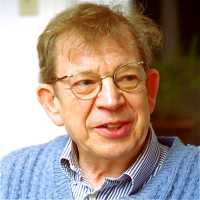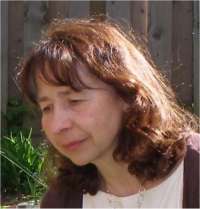Excerpts from the Essays
PART 2: Taking Stock of Personal and Institutional Histories: Calls to Account
The second section ... is comprised of accounts, from people who have lived through them, of significant transformations in Canadian universities since the late 1950s. The authors of these essays describe how these changes reshaped their own and others' calling to academic life and how the latter, in turn, affected both the particular institutions where they worked and the more general academic context.
A Brief Memoir from the Trenches
by Andrew Wernick, Cultural Theorist, Trent University

|
Let me leave aside that the Trent story itself is unfinished. The fact that there is a Trent story (and many Trent stories) should also be pondered. It is a witness to something remarkable. It proves, in the flesh, the possibility of developing a response to the travails of the modern university that does not accept the inevitability of its being ruined: a response that would be active, not reactive, that does not abandon the institutions (or abandon oneself to them), but which fights for them, and within them, that is institution-building, rather than de-institutionalizing, and comprehends this as an ongoing praxis in itself.
|
A Career against the Grain:
An Academic Callings Interview with
Dorothy Smith, Sociologist, University of Victoria

|
Newson: There's a way in which you've always taught against what is current and conventional and you've survived and thrived. I wonder if you think that that is a viable route for young academics today?
Smith: For me what really made the difference was the women's movement and being part of it. In a way I had an accidental career because it never occurred to me that the kind of sociology that I've developed out of what I learned in the women's movement was going to become interesting to others.
|
Living through Revolutionary and Reactionary Times-in the Wrong Order
by Roberta Hamilton, Sociologist, Queen's University.

|
Universities are bound to continue to be sites of resistance but who will resist, what they will resist, and their success in resisting are not predictable. Maintaining and creating spaces for new claimants to enter, for critical pedagogical practices, for collegial social relationships and for the research that incites passion and commitment-all this can be chosen. But-and I underline this point-through all this, academic rebels should be sure to find ways to meet the shifting criteria for tenure and promotion. Deprive administrators of the opportunity to deny you or others. Little will be gained if you swim against the tide and get sent out to sea. Be creative and, when possible, collective in your resistance. For those of us who love to read, write, research, and teach, the academic life offers far more than its competitors, but as with all lives, the meaning of it all is not just there for the asking. Perhaps the corporate pendulum has swung as far as it's going to, but what comes next will in part depend on those who choose the academic life and how they choose to live it.
|
Two Hours Left and Nothing to Say
by Bruce Curtis, Sociologist, Carleton University

|
I find myself surprised that every year a few students make it to their fourth year in sociology knowing how to read, to write, to analyze, and to criticize. ...As well, despite conditions that are economically less congenial than they were 30 years ago, I continually marvel at the depth and breadth of the intellectual insight offered by many of the doctoral students I encounter. Not to romanticize; it is still the case in North America that persistence will earn a PhD where imagination won't. But space and resources must be preserved for these often weird, complicated, conflicted, earnest, irreverent, passionate people many of whom pursue doctoral work because, in Weber's sense of a vocation, they can not do anything else. They keep faculty members like me alert intellectually.
|
From the Personal to the Political: Some Reflections and Hopes
by Jennie Hornosty, Sociologist, University of New Brunswick.

|
Today, professional student recruiters downplay the idea of a university as a place for critical thought, expanding horizons, and searching for truths; instead entrepreneurial disciplines and skill training are promoted. Since enrolments drive curriculum and staffing priorities, there is a real possibility that, in a corporate environment, courses and areas of study that are not profitable will be eliminated. ... We are already seeing in the current fiscal environment universities threatening to close women's studies programs. A corporate culture also threatens to stifle academic debate about what constitutes scholarship and knowledge and discussion about the role of universities in society.
|
Part 1:
Against All Reason:
Wake-up Calls
Part 2:
Taking Stock of Personal and Institutional Histories:
Calls to Account
Part 3:
Between a Rock and a Hard Place:
Calls to Administrative Leadership
Part 4:
Making Space:
Calls to Open Paths
Part 5:
Re/generating Publics:
Calls to Collectivity
|
|